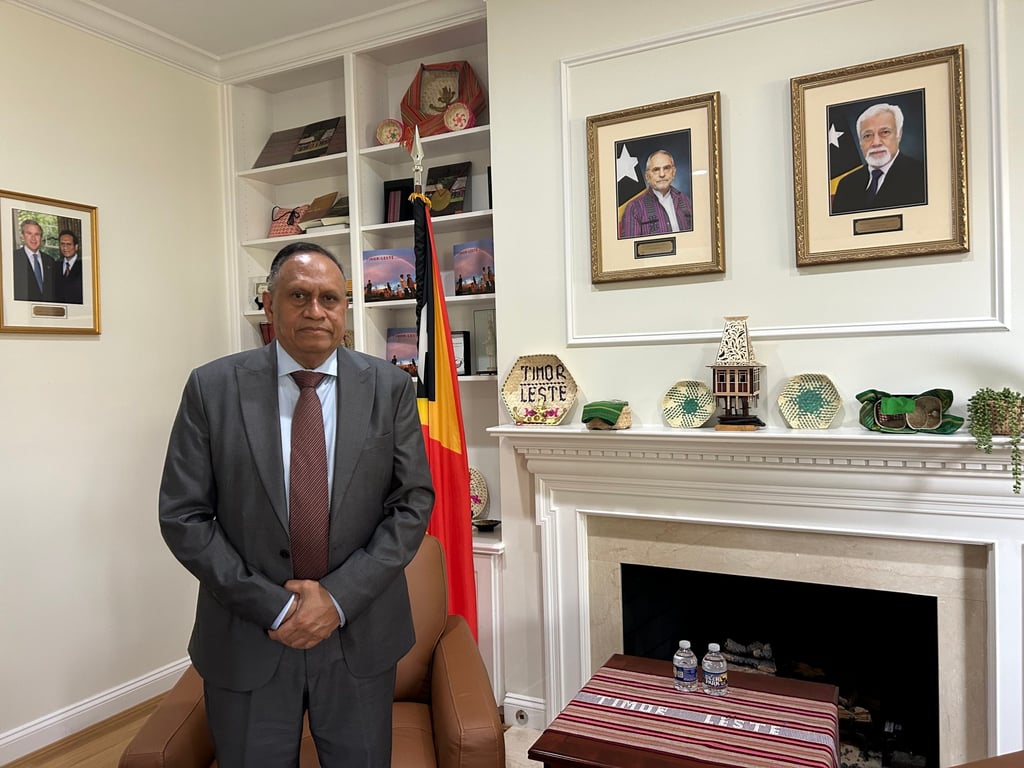For more than half a century, Jose Luis Guterres has been East Timor’s voice to the world – first as a diplomat in exile during Indonesia’s brutal occupation, and later as the fledgling nation’s deputy prime minister and foreign minister.
At 71, he still carries the weight of a tiny country that only gained sovereignty in 2002, after nearly 400 years under Portugal and a generation under Jakarta’s rule.
Back in Washington for a second, non-consecutive stint as ambassador – his first was under George W. Bush – Guterres sipped Timorese coffee on a late summer afternoon and reflected on the turbulent path that his nation of about 1.3 million people took to independence, and the challenges ahead.
“We are focused on the future, not on revenge for past mistakes,” he told The Post, noting the dramatic turnover of Indonesia from occupier to partner.

After declaring independence from Portugal in 1975, enduring two decades of conflict, a 1999 referendum, and a UN-led intervention, an independent East Timor has forged cordial ties with its giant neighbour.
So much so that Indonesia’s president Prabowo Subianto, once accused of unleashing militias against pro-independence civilians, has joined current Asean chair Malaysia in backing East Timor’s bid for full membership.
That same pragmatism, Guterres suggested, will shape East Timor’s next chapter as it finally joins the Association of Southeast Asian Nations this month, more than a decade after first applying in 2011. An official ceremony will take place in Malaysia’s capital, Kuala Lumpur, during the bloc’s leaders’ summit on October 26-28.
Quoting the country’s president and former resistance leader, Jose Ramos-Horta, who said in 2022 that entering Asean was more difficult than “entering heaven”, he stressed East Timor was “ready to be part of this great family”.
With a tiny economy heavily reliant on oil and gas exports, a petroleum fund invested largely in US markets, and a population eager for jobs and infrastructure, the country now faces the delicate task of balancing growth ambitions, consensus-driven Asean diplomacy, and the pressures of global geopolitics.
Membership opens the door to millions of potential customers across the region – within the trade-liberalised bloc itself and in Asean’s trade agreements, such as the Regional Comprehensive Economic Partnership, the world’s largest free trade pact.

